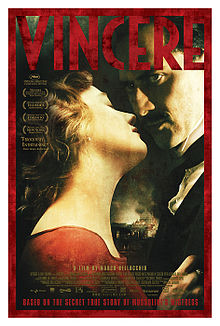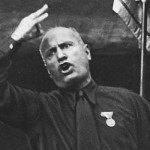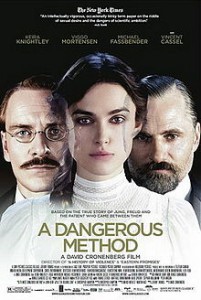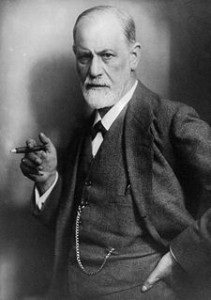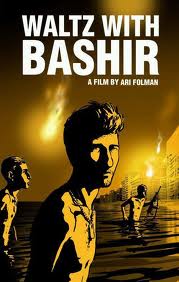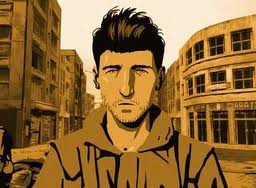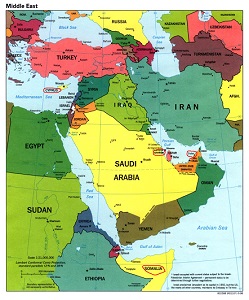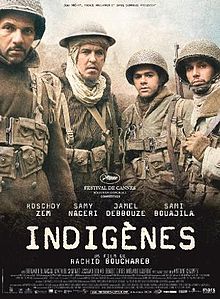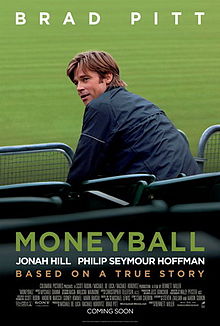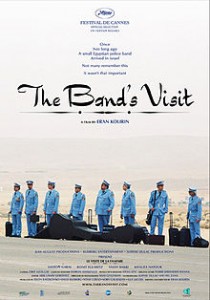 The musical group Police Orchestra—sent from Egypt for a concert to promote friendship—arrives at an Israeli airport. Although the Police Orchestra was sent to represent the country, there are only eight band members, and they look nonintimidating and somewhat like toy soldiers. There appears to be no escort or manager. By some mistake, the car also doesn’t come to pick them up, but nobody is upset even when left in Israel without knowing anyone—how come??
The musical group Police Orchestra—sent from Egypt for a concert to promote friendship—arrives at an Israeli airport. Although the Police Orchestra was sent to represent the country, there are only eight band members, and they look nonintimidating and somewhat like toy soldiers. There appears to be no escort or manager. By some mistake, the car also doesn’t come to pick them up, but nobody is upset even when left in Israel without knowing anyone—how come??
The band leader asks the youngest band member (in addition to being young, he has the best English skills, is a good-looking man, and immediately hits on Israeli women) to find the bus route that will take the band members to the town of the concert, but the young man pronounces their destination slightly differently—saying “p” instead of “b”—so the band members board the wrong bus and end up in the middle of the desert. The village they end up in is completely different from their intended destination, but, gentle as ever, the spirits of the band leader and members are not brought down. In the only restaurant in this village, the female owner is there as well as Man A and Man B, who are killing some time. While being treated to a meal by the owner, they learn that the last bus was the one they got off of and that this village doesn’t have a hotel. Even when the owner and these two men learn that the band members are from Egypt, they seem unfazed by this and seem to be even more carefree than the band members, with no dramatic hatred or political arguments. By the effort of the quite charming owner, it is arranged that the band leader and young band member stay in her own home, while the assistant leader and two other people stay in Man A’s home and the other three group members stay in Man B’s home for the night.
This woman in her monotonous life looks a little excited to have musicians come from the civilized country of Egypt and suggests that they drive together in a car to a fashionable place a short drive away. The woman—dolled up for the occasion—and the band leader arrive at an empty, spacious, dreary place, similar to a high school cafeteria. Is this a joke? However, because there is a wooden horse near the cafeteria—just like the ones that were on the rooftops of department stores in the old days in Japan—this place seems to be a place where people excitedly come and eat. While eating, the band leader notices that this woman, though a kind-hearted woman, has a loneliness that is not at first apparent; she spent her younger days without constructively thinking about her future and now is no longer young and realizes that there is no suitable man for her around. The band leader also carries a sad past involving his family, which he has told nobody about. Even though he can’t tell others in Egypt, somehow he is able to openly talk with this woman.
The young band member is excited as he drives to town with Man B of the same generation and his friends to play. However, the two girls that the young man brought along are not very pretty. They go to a disco in town, but the disco is not cool at all, only one-fifth of the size of a high school gymnasium. Man B, with no experience with women, doesn’t know how to be kind and escort the girl that came with them who is hurt from being ignored. The young band member can’t help but advise Man B in this situation.
In Man A’s home where the assistant leader is invited into, the man’s parents, wife, and baby are living together. None of them care that the band members are Arab!! The country of origin doesn’t upset them and they begin to matter-of-factly tell of their ordinary, everyday life. The father is quite a fashionable man and enjoys the occasion by singing a song with a band member during dinner. The father still remembers the beginning of his romance with his wife, but the mother doesn’t seem to remember much. The mother is instead more concerned with their son, Man A, who has been unemployed for a year. Man A and his wife also seemed to have married after falling in love, but their passion seems to have faded and it wouldn’t be surprising if the wife left at any time. I wonder what would happen to the baby if such a thing occurred. At the beginning, the audience is fixated on what will happen to the band members left in Israel who are like The Little Prince that flew down to Earth, but the attention of the audience naturally shifts over time to the lives of the people living in this small town in Israel.
After one night, the band members leave the town with feelings of gratitude. The members seem to have arrived safely at their destination as the movie ends with the scene of the band performing in front of a crowd. Someone may want to say that nothing happened, but this movie is in fact a surprisingly excellent work packed with a lot of content in 80 short minutes. Viewers may have different interpretations due to their experiences, knowledge, education, or interests, and each one may be correct. This movie is like a mirror reflecting each person’s heart.
I also had various thoughts when I watched this movie, but I’ll write about one—the intellectual criticism of American Hollywood movies flowing through the bottom of this movie. Hollywood movies offer romance and characters with beautiful faces that meet, fight, and have dramatic endings, but the director seems to gently say that these are not always required to make an excellent work. Some Israeli people with a connection to Hollywood make dramatic, big-budget movies about the Holocaust or Middle East conflict. But he may want to say that Israel is not just this. Even for young people living in Israel, it is hard to find a spouse they are excited to marry and, if they do, a stable life may not continue. Life is not easy even at the best of times, but it is even more difficult since there is strife with foreign countries and terrorism. People of various beliefs live in Israel, but most people understand the reality and the fact that there is no other country but Israel to live in. They do not know whether or not the methods used to found the nation of Israel were the best, but with the efforts of many people and a heavy price paid, they got their own country by expelling former inhabitants; with this past, there may be a genuine feeling of wanting to protect their country while inflicting as little harm on other groups of people as possible. Otherwise, what were the various sacrifices of the past for?
I have a close Jewish friend. She is married to a non-Jewish person, has a high-skill job, enjoys her relationships with people at the synagogue, enjoys her friendships with people of different cultures, supports the Democrat president, travels abroad every year, has saved money for retirement, and donates her extra money to support the higher education of girls in Kenya. For her, America is the only country where she can live happily and safely, but her son has a strong interest in Israel and, in the end, went to Israel to study abroad. According to her, “I didn’t intend to raise my child with the feeling of wanting to live in Israel, but I can’t stop him from wanting to go there. I tell myself that living and experiencing actual life in Israel is a necessary process for him. Half of me is worried for my son and half is proud of his determination.”

